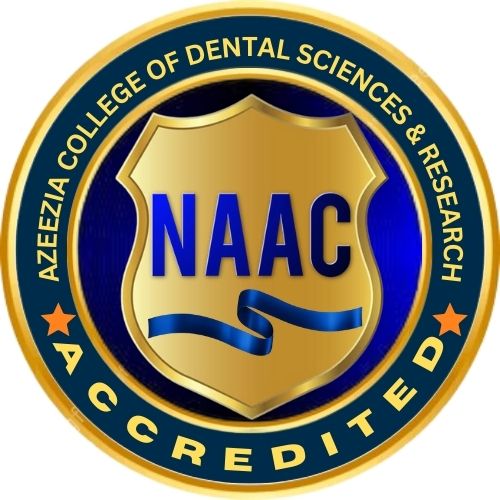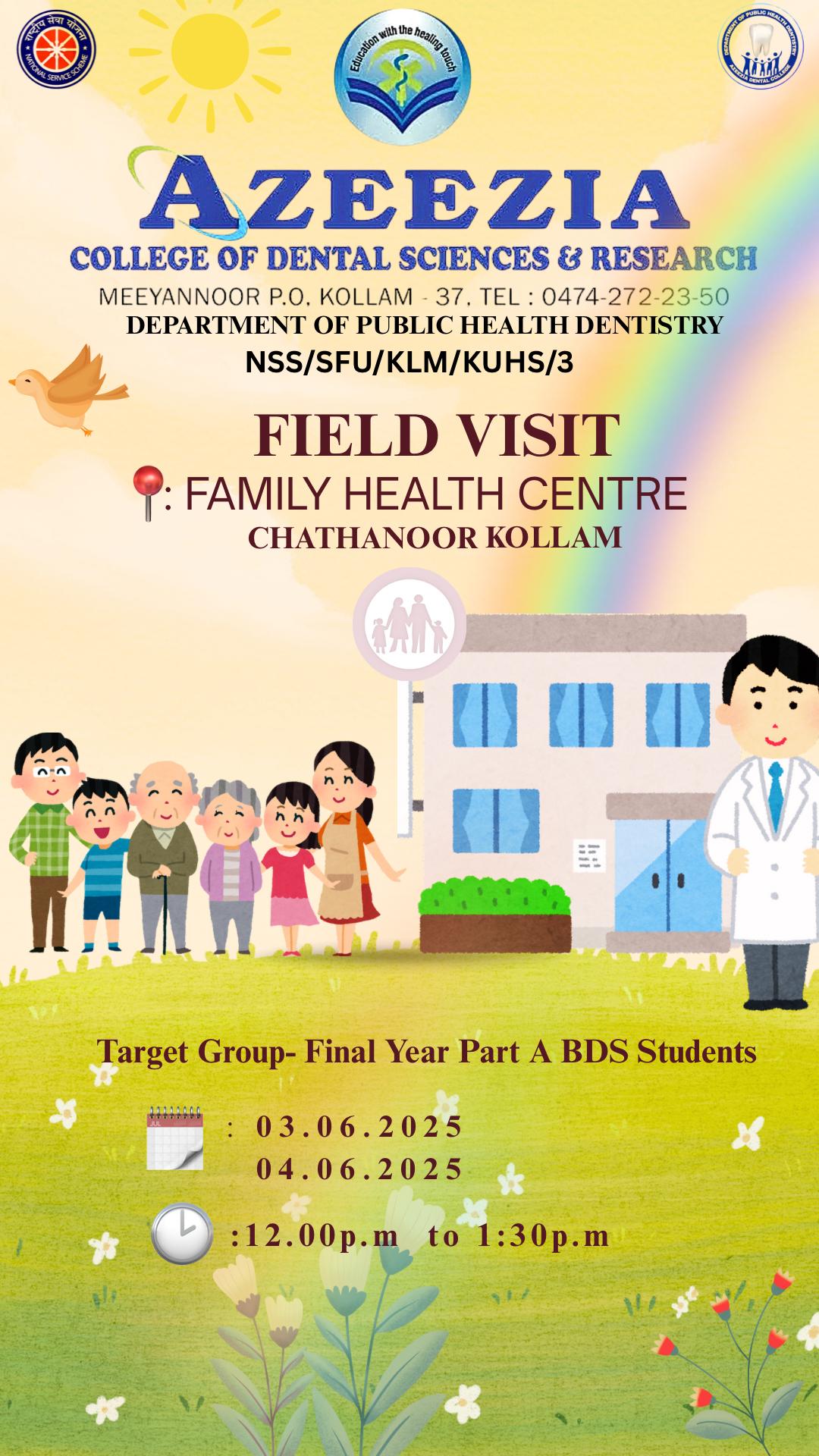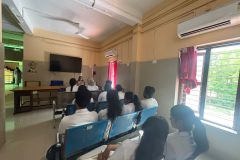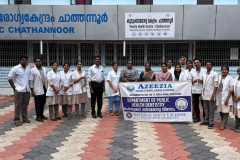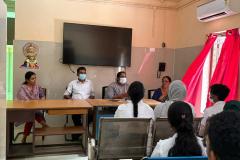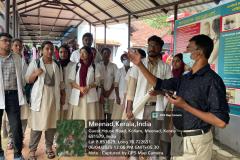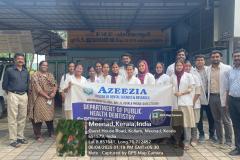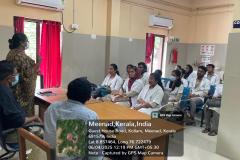REPORT OF FIELD VISIT FAMILY HEALTH CENTRE, CHATHANOOR
The Department of Public Health Dentistry Azeezia College of Dental Sciences and Research and NSS unit (NSS/SFU/KLM/KUHS/3) conducted a field visit to the Family Health Centre , Chathanoor on 3.6.2025 and 4.6.2025. This was established under Asset Development Fund 2013-14 by Government of Kerala. The family Health centre, Chathanoor was earlier known as the Primary Health Centre. It is envisaged to provide an integrated preventive and curative health care to the rural and urban population with emphasis on prevention on provocative aspects of health care.
It is established and maintained by the state government under minimum needs programme (MNP) / Basic minimum service programme (BMSP). The objectives of FHC are to promote health and efficiency of given population, to prevent and control disease and disabilities, to prolong life by providing need based, well balanced, comprehensive health care services to community at a large level through organized community effort and to conduct research. A brief idea about the family health centre, Chathanoor was given by the health inspector Mr. Pramod while exploring the site. The front office consisted of office of health inspector, office of head nurse and a room for ophthalmologic treatment which was available once a week. The functions of FHC included immunization under National Immunization Schedule (NIS) , OPD services from 9am till 1pm and from 2pm to 6pm on all days, 24 hours emergency services, tetanus toxoid vaccination for casualties, school health check up and adolescent health care, disease surveillance and control of epidemics. The staffing pattern consisted of 1 medical officer(MBBS), 1 health inspector,3 nurse or mid wife, 3 doctors (2 permanent and 1 panchayat) , 3 pharmacist,1 physiotherapist,1accountant and data entry operator,1laboratory technician and1ophthalmologist.
When we proceeded further there was an immunization room for children under 16 years of age along with a storage department. There is also a room for Covid vaccination along with it. Then there was a tank for breeding guppies ( Poecilia reticulata) which have important role in mosquito eradication. The guppies were supplied to households to prevent mosquito borne diseases. There was a play ground for children which has a huge impact in promoting immunization and make them quick adaptive to environment and hospital premises. The waste was segregated by the regulations put forward by Indian Medical Association Goes Eco-friendly (IMAGE). It refers to biomedical waste management programme initiated by IMA. In Kerala IMAGE is situated in Kanjikodu, Palakkad district. The collect biomedical waste which are segregated were identified using color coded covers including red ,yellow, white, blue and black on every 48 hours. The outpatient department is a well equipped establishment with computerized op tickets and prescriptions. There is a written as well as E-health prescription available.
There are 3 cabins for consultation of each of the doctors and a nursing station which consisting of 3 nurses, a head nurse and a staff nurse. Pharmacy has the essential medications including antibiotics, analgesics, anti histamine etc with impeding services by 3 pharmacists. There’s also a house keeping room and dressing room available on all days.
Threading along the stairs there is a palliative care room, yoga room with trainer open on all Thursdays. The autoclave room has all the sterilized materials and a conference room available in which we all were seated. The health inspector Mr.Pramod was talking about immunization, prevention and route of propagation of communicable diseases, management of non communicable diseases, awareness about public health and proper waste management. Then the Medical officer gave us a brief idea about working of immunization programme. The vaccines were stored at 4-8°C in ICR. The he talked about the medical management of pregnant women and about menstrual health and nutrition. Before we were to leave the family health centre the health inspector introduced us an extravagant space of medicinal plants which was named as ‘Aushadhathottam’.
The field visit to Family Health Centre, Chathanoor provided valuable insights into functioning of a health provision system in Kerala, about the working of a FHC , about the importance of immunization, routes of propagation of communicable diseases and about nutrition and well being of pregnant and lactating women and provision if proper sanitation and water availability. Overall knowledge about various aspects in healthcare is a much important factor in leading a sound disease free life.


